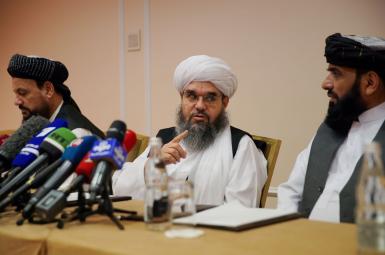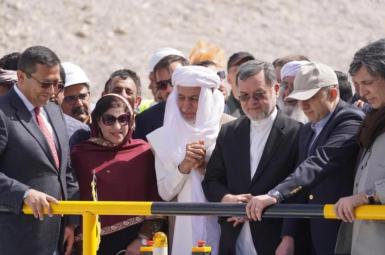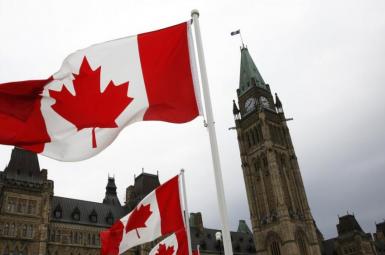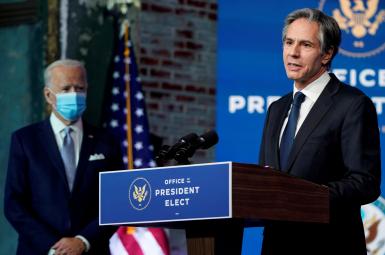
Chinese Interest In Afghanistan Growing As Biden Team Reviews Trump’s Deal With Taliban
Last month, Ahmad Zia Saraj, director of Afghanistan’s National Directorate of Security (NDS), confirmed to parliament the arrest of a group of Chinese nationals allegedly spying. India’s Hindustan Times had on December 25 reported the detention of ten Chinese earlier that month and claimed two of them had been in contact with the Haqqani network, a militant Sunni group going back to the 1980s.
President Ashraf Ghani allowed the detainees to be transferred by a chartered plane to China on January 2 – with no public explanation as to what they had been up to in Kabul. Might there be a link to a CNN report on December 31 that United States President Donald Trump had received intelligence of China paying “non-state actors” to attack American forces in Afghanistan?
Security has been deteriorating in Afghanistan with rising civilian and military casualties. At least 106 pro-government forces and 14 civilians died in the week ending January 21. The Taliban appears to have stepped up pressure as Trump reduced the US troop presence to 2,500, the lowest level since the US attacked Afghanistan in 2001, and down from a high of 13,000 under Trump. The US ambassador, appointed by Trump, claimed to have “won the war we needed to fight.”
In February 2020, the Trump administration signed an agreement, excluding the Ghani government, with the Taliban under which the US would withdraw all troops by May 2021 and the Taliban would engage with the Kabul government.
After four months of negotiations, the Afghan government and the Taliban have not reached agreement, and the impasse concerns Pakistan, India, and Iran. Politicians in China, Afghanistan’s north-eastern neighbor, have also expressed growing interest. Last year, Taliban’s deputy leader Mullah Baradar visited Beijing, while Wang Yu, China’s ambassador in Kabul, has been active in trying to draw various Afghan political figures into a peace process.
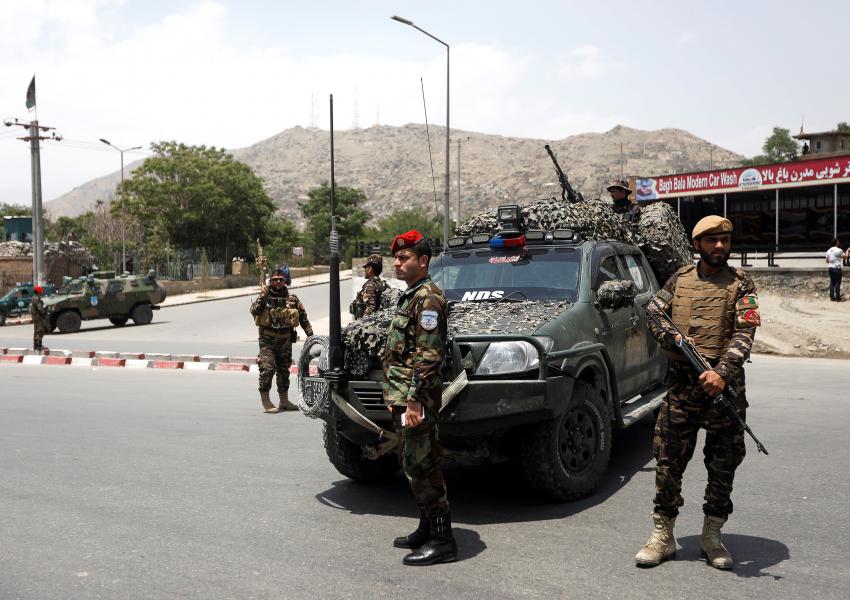
The area of China next to Afghanistan – abutting a 76km border – is the restive state of Xinjiang, which is mostly inhabited by Muslim Uyghurs, who are subject to widespread government abuse according to reports from groups including Human Right Watch. The East Turkestan Islamic Movement (ETIM), a radical Islamic movement among the Uyghurs and a thorn in China’s eye, is active in Afghanistan’s neighboring Badakhshan province.
The Badakhshan governor has said that around 800 ETIM fighters are associated with the Taliban in the Jerm, Warduj, and Raghestan districts of Badakhshan, fighting against the Afghan government when not commuting across the border.
China is wary of the presence of the ETIM and other Islamic militants like Isis (the Islamic State group) and al-Qaeda on its borders. Chinese officials have noted that the US last year removed the ETIM from its ‘terrorism’ list and fear the US might use the group to establish a corridor to reach Xinjiang and destabilize China. In 2018 Beijing announced a plan for a joint military base with the Afghan army to control the militants, but Kabul officials subsequently told the Afghan media the project had been dropped under US pressure.
China has concluded that it cannot deal with the problems of the ETIM and the Uyghurs while the US remains in Afghanistan, and is therefore keen to facilitate and accelerate the Trump-Taliban withdrawal agreement. Paying “non-state actors” to kill Americans could serve that goal.
The Biden Administration has said it is reviewing US Afghan strategy – questioning the Trump-Taliban agreement, and considering both the remaining troop presence and the possibility of leaving CIA agents to monitor al-Qaeda and others. Antony Blinken, Biden’s nominee as secretary of state, told the senate during confirmation hearings that the new administration wanted to “retain some capacity to deal with any resurgence of terrorism, which is what brought us there in the first place.”
Other Nato members with a military presence − including Germany, the United Kingdom, Italy and Georgia − have announced they are not ready to leave Afghanistan. They are, however, reliant on infrastructure established by the US, and Nato Secretary-General Jens Stoltenberg last year criticized Trump’s troop withdrawal plan.
Afghan vice-president Amrullah Saleh has expressed the view that due to the country’s geopolitical importance, the US will not leave. US military spending in Afghanistan between 2001 and 2019 has been put at $2 trillion. Yet the World Bank reported in October that the country’s health system had “a critical shortage of key ingredients…[that] severely limit the availability of even the most basic healthcare for most Afghans.”


